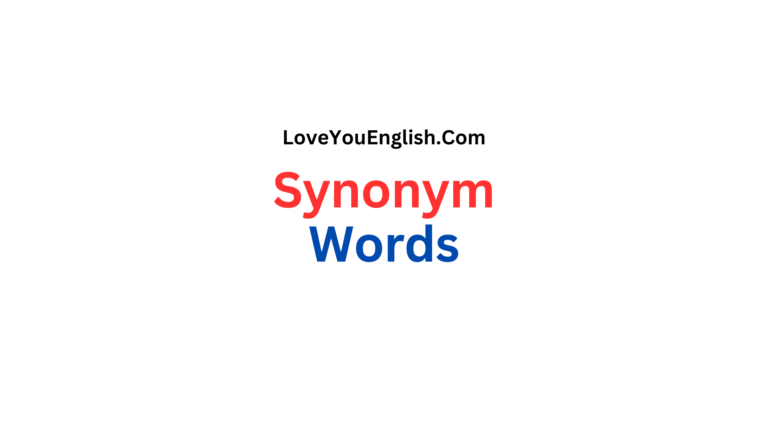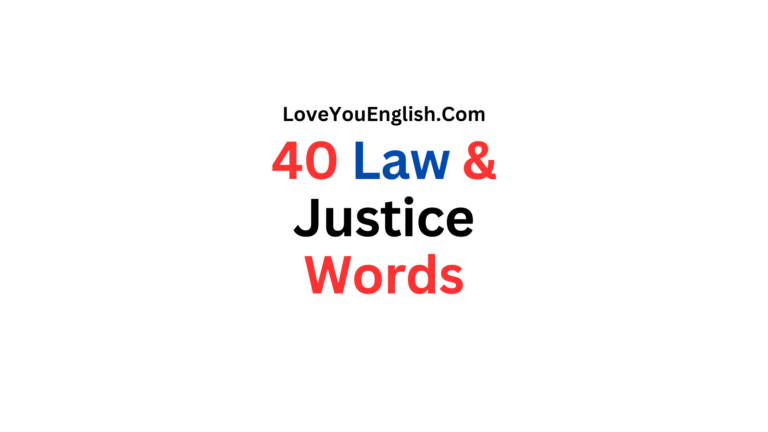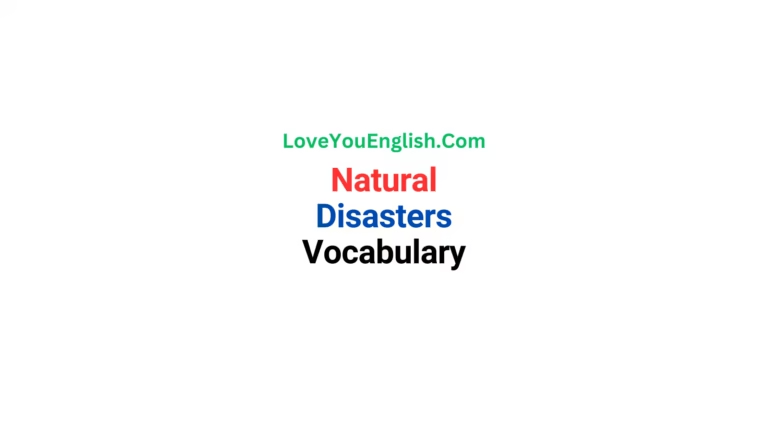English Vocabulary for Shopping
Sharing is caring!
English Vocabulary for Shopping: From Bargaining to Brand Names
Shopping is something that everyone does at some time in their life. Whether you’re getting groceries, checking out a local market, or visiting a fancy store, knowing the right words can make it easier and more fun.
In this blog post, we’ll look at important English words related to shopping, including how to bargain, different brand names, types of stores, and helpful phrases.
Let’s get started!
1. Understanding Different Types of Stores
Before you start shopping, it’s helpful to know the types of stores you might encounter.
Each store has its own style, products, and price range.
Here are some common types of stores:
- Grocery Store: A place where you can buy food and household items. Examples include Walmart and Kroger.
- Department Store: A large store that sells a wide variety of goods, including clothing, cosmetics, electronics, and home goods. Examples include Macy’s and Nordstrom.
- Supermarket: Similar to a grocery store, but larger and offers a wider selection of food and household products. Examples include Costco and Aldi.
- Convenience Store: A small store that sells everyday items such as snacks, beverages, and toiletries. Examples include 7-Eleven and Circle K.
- Boutique: A small, stylish shop that specializes in unique clothing and accessories. These stores often have higher-priced items.
- Thrift Store: A store that sells second-hand goods at low prices. Great for budget shoppers! Examples include Goodwill and Salvation Army.
- Online Store: A website where you can buy products. Examples include Amazon and eBay.
Vocabulary for Types of Stores
- Retail: Selling goods directly to customers.
- Wholesale: Selling goods in large quantities at lower prices, usually to businesses.
- Outlet: A store that sells goods directly from a manufacturer, often at discounted prices.
- Showroom: A space where products are displayed for customers to see, usually before purchasing.
Knowing these store types can help you decide where to shop based on your needs.
2. Bargaining: Negotiating Prices
Bargaining is a common practice in many cultures, especially in markets or when buying used items.
Here are some key vocabulary words and phrases for bargaining:
Key Vocabulary
- Price: The amount of money required to purchase something.
- Discount: A reduction in the regular price of an item. For example, “This dress is on sale for 20% off.”
- Bargain: To negotiate the price of an item. For example, “I managed to bargain the price down from $50 to $30.”
- Offer: A proposal to buy something at a certain price. For example, “I can offer you $10 for this book.”
- Counteroffer: A response to an offer that suggests a different price or terms. For example, “I’ll give you $15 instead of $20.”
- Final Price: The price agreed upon after negotiations. For example, “What’s your final price for this jacket?”
- Haggle: To negotiate persistently over the price of something. For example, “Don’t be afraid to haggle when buying at a flea market.”
Useful Phrases for Bargaining
- “Can you lower the price?”
- “Is that your best offer?”
- “I’m interested, but it’s too expensive for me.”
- “I saw a similar item for a lower price.”
- “Can you do any better on the price?”
Bargaining can be a fun part of shopping, especially when you can get a better deal!
3. Brand Names: Recognizing Quality and Style
Brand names play a significant role in shopping.
They often reflect the quality, reputation, and style of a product.
Here are some common brand-related terms:
Key Vocabulary
- Brand: A name or symbol that identifies a company or product. For example, Nike, Apple, and Coca-Cola are well-known brands.
- Label: The information attached to a product that includes the brand name, ingredients, or care instructions. For example, “The label says to wash in cold water.”
- Luxury Brand: A high-end brand known for its exclusive products and high prices, such as Gucci or Rolex.
- Generic Brand: A brand that is not well-known but offers products at lower prices. For example, store brands like Great Value.
- Designer: A brand created by a well-known designer, often associated with fashion and luxury. For example, “She wore a designer dress to the event.”
Useful Phrases for Discussing Brands
- “What brand is this?”
- “I prefer buying from well-known brands.”
- “Is this a luxury or generic brand?”
- “I love shopping for designer items.”
- “Do you have this in another brand?”
Understanding brand names can help you make informed choices when shopping.
4. Shopping for Clothing and Accessories
When shopping for clothes, you’ll encounter various terms related to sizing, styles, and materials.
Here are some essential vocabulary words for clothing shopping:
Key Vocabulary
- Size: The measurement of clothing, such as small (S), medium (M), large (L), etc. For example, “What size do you wear?”
- Fit: How well a garment conforms to your body. For example, “This shirt has a loose fit.”
- Style: The design or appearance of a piece of clothing. For example, “I prefer casual styles over formal ones.”
- Fabric: The material used to make clothing. Common fabrics include cotton, polyester, and wool.
- Accessories: Items worn with clothing to enhance the overall look, such as jewelry, belts, or bags.
Useful Phrases for Clothing Shopping
- “Do you have this in a different size?”
- “What fabric is this made of?”
- “I’m looking for a casual outfit.”
- “Can I try this on?”
- “Where is the fitting room?”
These phrases will help you navigate the clothing shopping experience more comfortably.
5. Electronics and Gadgets
When shopping for electronics, you’ll encounter specific terminology that can be helpful.
Here’s a look at some essential electronics vocabulary:
Key Vocabulary
- Gadget: A small electronic device that serves a particular function. For example, a smartphone or tablet.
- Warranty: A guarantee provided by the manufacturer that a product will work for a certain period. For example, “This phone comes with a one-year warranty.”
- Specifications: Detailed descriptions of a product’s features and capabilities. For example, “What are the specifications of this laptop?”
- Model: The specific version of a product. For example, “I have the latest model of that camera.”
- User Manual: A guide that provides instructions on how to use a product.
Useful Phrases for Electronics Shopping
- “What’s the price of this gadget?”
- “Does it come with a warranty?”
- “Can I see the specifications?”
- “What model is this?”
- “Where can I find the user manual?”
These phrases will help you when buying electronics, ensuring you get the right product for your needs.
6. Shopping Etiquette
When shopping, it’s important to follow certain etiquette to ensure a pleasant experience for both you and the store staff.
Here are some vocabulary terms and phrases related to shopping etiquette:
Key Vocabulary
- Customer Service: Assistance provided by staff to help customers find what they need. For example, “The customer service here is excellent.”
- Return Policy: The rules regarding the return of purchased items. For example, “What is your return policy?”
- Refund: Money returned to a customer after they return a product. For example, “I would like a refund for this item.”
- Exchange: Trading one item for another of equal value. For example, “I’d like to exchange this shirt for a different size.”
Useful Phrases for Shopping Etiquette
- “Excuse me, can you help me?”
- “I’d like to return this item.”
- “Can I get a refund for my purchase?”
- “What’s your exchange policy?”
- “Thank you for your help!”
Using these phrases will help you interact politely and effectively with store staff.
7. Shopping Online: Vocabulary for the Digital Age
Online shopping has become increasingly popular, so understanding the vocabulary associated with it is essential.
Here are some key terms:
Key Vocabulary
- Cart: A virtual basket where you store items you want to buy online. For example, “I added this dress to my cart.”
- Checkout: The process of completing a purchase online. For example, “Let’s go to checkout to finalize the order.”
- Shipping: The process of delivering items purchased online. For example, “What are the shipping options?”
- Tracking Number: A unique number assigned to a package that allows you to follow its delivery progress.
- Secure Payment: A safe method of paying for purchases online. For example, “Make sure the website offers secure payment options.”
Useful Phrases for Online Shopping
- “Is there free shipping on this order?”
- “Can I track my package?”
- “What payment methods do you accept?”
- “How long will delivery take?”
- “I need to return an item I ordered online.”
These phrases will assist you in navigating the world of online shopping with confidence.
8. Practicing Your Shopping Vocabulary
To get comfortable with shopping vocabulary, consider these practical tips:
- Visit Local Markets: Engage with vendors and practice bargaining. This real-life experience can help reinforce your vocabulary.
- Online Shopping: Browse websites like Amazon or eBay. Pay attention to product descriptions and how different stores present their items. Try adding items to your cart and going through the checkout process to familiarize yourself with online shopping terms.
- Role Play: With a friend or family member, practice shopping scenarios. Take turns being the customer and the shopkeeper. This will help you become more confident using shopping vocabulary in conversation.
- Watch Shopping Videos: Platforms like YouTube have many videos that explore shopping experiences. Listen to how others use shopping vocabulary and practice mimicking those phrases.
- Create a Vocabulary List: Write down new words you come across while shopping. Make flashcards to quiz yourself on their meanings and uses.
9. Final Thoughts
Improving your shopping vocabulary is a super useful skill that can make your shopping trips way better, whether you’re at a nearby store or shopping online.
By learning these words and phrases, you’ll be more confident in making smart choices, getting good deals, and talking clearly with store employees.
10. Key Vocabulary Recap
Here’s a quick recap of the essential vocabulary covered in this blog post:
- Types of Stores: Grocery store, department store, boutique, thrift store, online store.
- Bargaining: Price, discount, bargain, offer, counteroffer, haggle.
- Brand Names: Brand, label, luxury brand, generic brand, designer.
- Clothing Shopping: Size, fit, style, fabric, accessories.
- Electronics: Gadget, warranty, specifications, model, user manual.
- Etiquette: Customer service, return policy, refund, exchange.
- Online Shopping: Cart, checkout, shipping, tracking number, secure payment.
When you learn this vocabulary, you’ll make your shopping trips way better and feel more sure about using English in everyday life.
So, the next time you shop—whether it’s at a store or online—keep these words and phrases in mind to really enjoy your experience!
Conclusion
Shopping can be an exciting and enjoyable activity, especially if you know the right words to use.
Knowing about different kinds of stores, how to bargain for better prices, and being able to identify brand names can really improve your shopping adventure.
Each part of shopping has its own special words that can make it even better.
Read more:
Sharing is caring!







